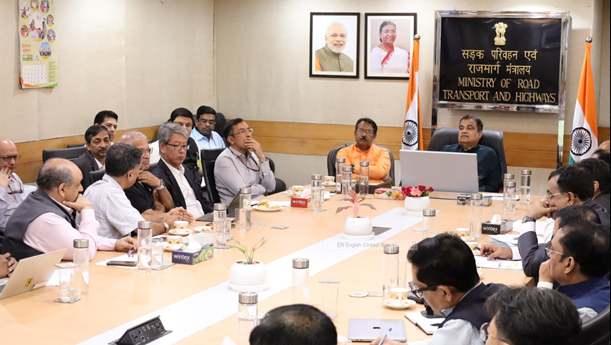Minister for road transport and highways Nitin Gadkari has asked automobile manufacturers to look into ways of making ethanol and flex fuels more acceptable to the public, citing Brazil’s successful integration of biofuels in its transportation systems.
The minister also discussed how a shift to biofuels from fossil fuels would help India become #AtmaNirbhar (self-reliant), reduce pollution, cut imports of fossil fuels, and help consumers by lowering fuel prices — all while benefiting farmers.
In December 2021, the government advised automobile manufacturers to start production of flex fuel vehicles and flex fuel strong hybrid electric vehicles (FFV-SHEV) complying with BS-6 emission norms. An electrified flex fuel vehicle provides the option of advanced chemistry battery along with a flex fuel engine.
Gadkari had said then that guidelines for the use and development of flex fuel engines and vehicles would be formulated in line with the government’s vision to reduce crude oil imports and the policy on promoting ethanol as a transport fuel. These vehicles are capable of running on a combination of 100% petrol or 100% bioethanol and their blends, along with strong hybrid electric technology in the case of FFV-SHEVs.
However, the segment is yet to pick up. In August 2023, Toyota Kirloskar Motor unveiled the prototype of the world’s first BS-6 electrified flex fuel vehicle.
Tags: Ethanol, Fossil Fuels, SIAM



Recent Posts
FRV Partners with Envision Energy on Green Ammonia Project in Brazil
Hamburg Trials HVO 100 Biofuel for Port Fleet as Interim Decarbonization Measure
CUMTA considers water metro linking ECR and Napier bridge
BSM unveils methanol bunkering simulator to equip seafarers for greener shipping
DPA commissions India’s first Make-In-India green hydrogen plant at Kandla
Port of Tauranga to Trial New Zealand’s First Fully Electric Straddle Carrier
OceanScore Crosses 2,300-Vessel Mark as Demand for Compliance Solutions Grows
HD Hyundai and H-Line Shipping Collaborate on AI-Powered Autonomous and Eco-Friendly Vessel Technologies